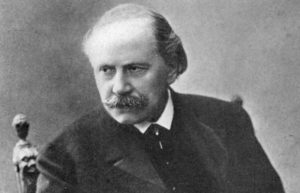
Composer Profile: Jules Massenet, The Chameleon Composer
By David SalazarJules Massenet, born on May 12, 1842, is arguably the chameleon of all opera composers, his style evolving to suit the text rather than imposing a specific musical style to every work.
This ability makes him, for many, the greatest French composer of opera to ever live.
He studied under Ambroise Thomas in his youth, won the country’s top musical prize in composition and then went on to put together a prolific career as an opera composer with dozens of operas to his name.
In sum, he left a handful of works that were lost to posterity, but many of the ones that remain are cornerstones of the repertoire and widely considered operatic masterpieces.
In 1866, he wrote and completed his first opera, “La Coupe du Roi de Thulé,” though it was never performed (his previous effort “Esméralda” was left unfinished). His subsequent effort, “La Grand’tante” was completed and performed on April 3, 1867.
Massenet’s final opera was “Amadis,” which he composed in 1895 and had its world premiere on April 1, 1922.
Major Work
There are two operas in Massenet’s oeuvre that are locks in the standard repertoire, and for good reason. The first and best known of these is “Manon,” based on the famed work by Abbé Prévost. The work features a treacherous role for the leading lady, challenging her vocally and dramatically as she develops opera’s most spoiled brat. The character development for Manon is incisive, if frustrating, but certainly complex in Massenet’s portrayal.
“Werther,” his other masterpiece, also features a character that can be challenging to completely empathize with. After all, the titular role wants to end a marriage for his own sake, never really considering the hearts he might break in trying to cure his own obsessive nature. And yet, the work has incredible depth of passion, the titular role given some of opera’s most fascinating vocal challenges.
These operas are lush with melodies and intensity that identifies them as works of their composer; and yet, their styles aren’t always so similar and there is a marked uniqueness about each one.
Also well-known, though not on the level of these other two works are “Thaïs,” “Don Quichotte,” and “Cendrillon.” Listen to those other three works and you get a sense that they are by the same composer and yet worlds apart.
Read More on Massenet
A Look at Massenet and Faure’s Greek Operas
Watch and Listen
In modern times, few artists have exhibited the chemistry that Anna Netrebko and Rolando Villazón exuded in “Manon.” Just take a look.
Arguably the greatest interpreter of the modern era, Jonas Kaufmann has become synonymous with “Werther.”
Categories
Opera Wiki

